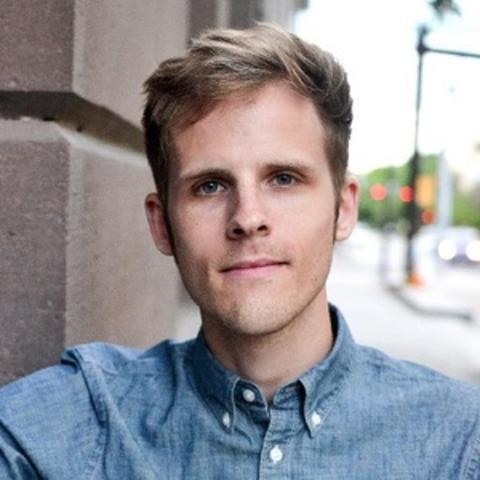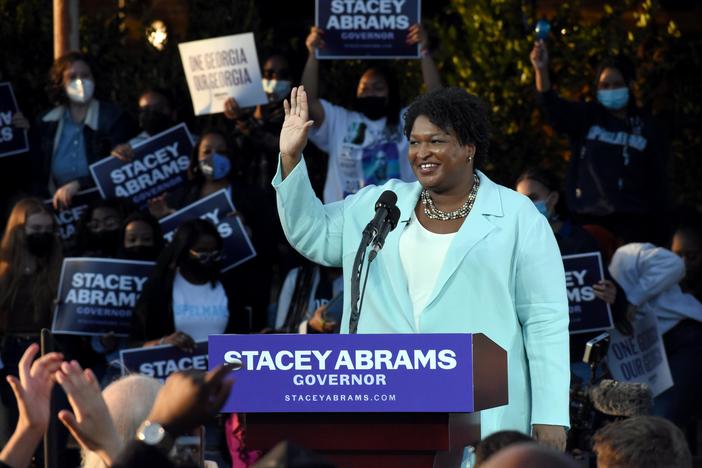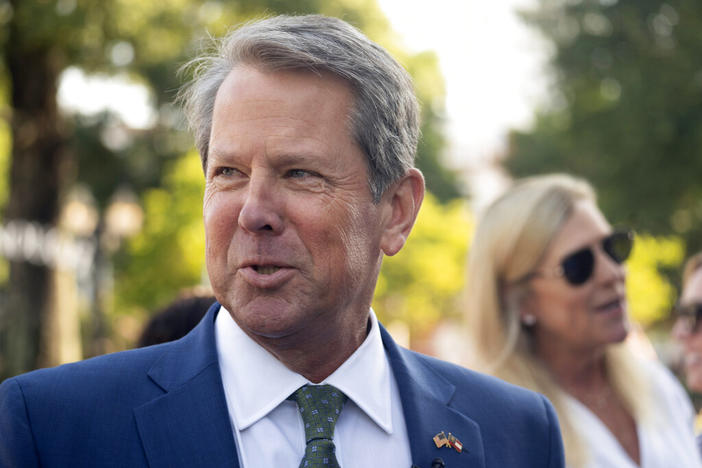Section Branding
Header Content
Georgia Lawmakers Push To Help Kinship Caregivers
Primary Content
The story of how Bernice Smith’s grandson became her son is a story told by documents.
Some of the ones she flipped through in the living room of her Decatur, Georgia home were official looking, covered with stamps and seals. Others were more informal.
“This is his autobiography that Stephen wrote himself,” Smith said, holding a printed page. “It says, ‘God Works In Mysterious Ways.’”
Smith’s grandson, Stephen, is the first son of her oldest son and one of her eight grandchildren. Stephen ended up living with Smith when he was just five years old, because his father’s living situation wasn’t stable.
“He’s been with me ever since,” Smith said.
Smith said the Georgia Division of Family and Children Services wanted Stephen to live with her. Doing so would keep him out of Georgia’s foster system, which would save the state money and give Stephen a better chance at a normal life.
However, Smith said she didn’t receive much financial support from the state: not even enough to cover the cost of childcare.
“It was hard on me to do it, but I took care of him,” Smith said.
Her story’s not uncommon. According to The Annie E. Casey Foundation, Georgia was home to more than 100,000 kinship caregivers in 2012.
Some of those were like Smith and had contact with the child welfare system, but some weren’t and likely received no support.
One group of Georgia lawmakers feels it's time the state steps up and does more to help kinship caregivers.
“We’ve had lots of anecdotal conversations, but we’re going to put a stake in the ground by offering legislation,” said state House Minority Leader Stacey Abrams (D-Atlanta), who leads the kinship care study committee.
That legislation would establish subsidies for kinship caregivers that match those that foster parents receive and give kinship caregivers more help finding financial and emotional support services that are already available.
The study committee has spent the last few months traveling around the state listening to kinship caregivers. At their final hearing in Atlanta, caregivers, including Bernice Smith, stood and told their stories. They said they want to care for their family members, but that they need more help doing so.
Abrams said some of that help might come out of the 2016 legislative session.
“I’m not naive enough to believe that we will get everything we want for these families in a single cycle,” she said. “But if we can start the conversation, what I’ve seen in my 10 years in the legislature is that if you keep up enough attention, you will eventually get to the solutions that you need.”
Robert Geen, who works who works on kinship care issues with the Annie E. Casey Foundation, applauded the work being done in the state.
“The push Georgia is making is a very positive one,” he said. “I would say Georgia’s just a tiny bit behind the curve even.”
He said all children experience trauma when they’re separated from their parents, but that living with kin can help reduce the force of that trauma and give children better education and health outcomes.
“All you have to do is put yourself in that position,” Geen said. “How would you react if all of a sudden someone came to you and said, ‘Can you care for a child?’”
Bernice Smith remembered her response: “I said, ‘Well, I guess I’ll just have to take care of you, boo.’ And that’s what I did."
Back in her living room in Decatur, Smith flipped through other documents that told her story, like the adoption papers that officially made her grandson Stephen her son.
“I always told my grandson there are four things I will always be to him: his mother, his father, his grandmother, and his friend,” Smith said.
In 2008, Stephen graduated from high school. Now, he’s in the Air Force and married with a family of his own. Smith said she cared for her grandson, because she felt she could give him the best chance of a normal life.
That’s exactly the kind of outcome Abrams and her study committee hope Georgia lawmakers will support come 2016.
Secondary Content
Bottom Content








